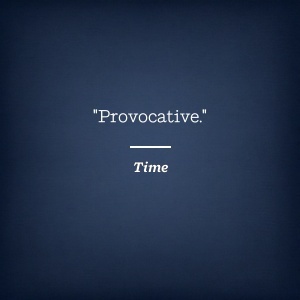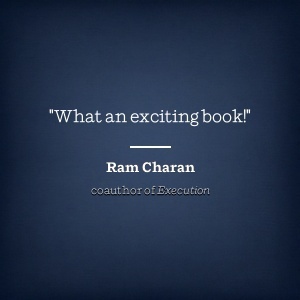Customer Services
Copyright © 2025 Desertcart Holdings Limited


Full description not available



A**A
“Innovation Doesn't Strike—It Grows. Innovation doesn't reject the past; on the contrary, ....
“Innovation Doesn't Strike—It Grows. Innovation doesn't reject the past; on the contrary, it relies heavily on the past and comes most readily to those who've mastered the domain as it exists.”I bought the book after reading Malcolm Gladwell books, his theories on training practice and the 10,000 hours theory and finding reference to peak (a great book also), where I was introduced to the deliberate practice. The theory intrigued me, the book has a slow start with general talk and no concrete information, it is general references, such as “a metanalysis study on sales people”, etc., there are no facts or references to refer to know, study further, understand the facts. Another example is on page 43 gambling.The book starts gaining pace and coming into life with valuable information, studies and references. It starts with discussing IQ and Memory (a proof that it is a skill that can be acquired is the book “moonwalking with Einstein”)As in Peak Colvin refers to the Laszlo polgar case, one of the most important live case study in the domain of practice. He also refers to blink, the first book I read for Malcom and got me to read all his books. Noting that in my modest opinion the three books Peak, Blink and Talent is Overrated complete each other.Another reference in the book to an EXCLLENT book Sam Walton, Wal Mart!A myriad of important discoveries are referred to on the importance, and reason of success. Success is never innate but due to hard work. Traits of accomplishers are mentioned in chapter 4: they perceive more, they see indicators that average performers don’t see, they look further ahead, know more from seeing less, have finer discrimination, know more (knowledge through domain expertise is a key), and remember more.I particularly loved the straightforward and extremely simple example he gave on page 99 to explain the short-term memory tasks of remembering in chunks.The essence of the book is the deliberate practice theory, a great example on applying it is Benjamin Franklin. Th age old example of how he used the spectator to improve his English, vocabulary and style page106-107. I cannot remember how many times I came across this example in many books, including Benjamin Franklin’s own autobiography.The author comes to another important set skill self-observation or Metacognition and many other sets of theories and skills that make this short book an essential read. It ends with the Flow and Multiplier effect.A reference from another important book by Mihaly Csikszentmihalyi, Flow: The Psychology of Optimal Experience. From there we move to the multiplier effect, which can be defined as “A very small advantage in some field can spark a series of events that produce far larger advantages.” The importance of the theory stems from the fact that a small success or complaint creates a drive that leads to higher efforts leading to higher achievements.In the end to sum it all up, the willingness to go the extra mile the willingness to try and fail is the first step, many other factors, internal or external, intrinsic or extrinsic. But it all boils down to the will and motivation. The will to sacrifice for a goal stem from the importance of the goal to us. Deliberate practice is HARD there is no easy way!
S**I
Looking in the mirror : generally unspoken truth finally becomes readable. A personal testimony.
In this book the author makes constant reference to a selection of high-profile fields ; among those, piano playing. Thus numerous examples are used from the instrumental practice to make a number of points. For a classically trained, young-age starter professional pianist with extra long studies in a handful of musical domains at the highest level, the book hits home grand style.In fact, reading it took me through a journey of staring in the mirror. I literally grew up transcending every one of the myths presented here, gradually learning to separate hard truth from alleged misconceptions. So here's a personal testimony in this sense, based on my own hard truth. The following may seem subjective ; indeed I believe it is. But think of it as the exact counterpart to support the findings in the book with actual life experience from someone who's ever been there (and will no doubt forever be).My journey started at age 4 as the 3rd generation of professional musicians - grandfather and both parents. Therefore I can wholeheartedly support Mr. Colvin's assertions regarding long-term professional building : they're all true and I've known them all.The supporting family with a naturally oriented bias towards a given field : music ; the constant availability of all forms of material therein : records, scores, training at home by both parents, answers available to any question, guidance and follow-up ; the long years of "drought" as I labeled them - during which one continues to practice an instrument not by pure personal choice but rather because it's so normal, so ingrained in family values that nobody even thinks it could be otherwise (drought means you get almost no pleasure in so doing, it's a constraint. Pleasure comes years later) ; the constant help and feedback from trained, sensitive and, may I add, unforgiving ears ; the double peer pressure - at home as stated and in musical school, where most of the others also are early go-getters in permanent competition for attention, rewards and so on.So how do you do it ? Here are a few answers. Dig within yourself to find the patience needed to pour in the long hours when no or so little juicy pleasure comes out of them. Try to believe your elders when they keep assuring you that the base you are currently building will forever serve you and place you among the highest achievers in music. Accept to forfeit football games with friends, Sunday mountain excursions, prolonged breaks in week-ends and many of childhood's perks. As the author writes, it may seem barbarous. But reinforce yourself every Monday morning in school, seeing all the other ambitious youngsters around striving likewise towards the same goals. Try to inhale the positive of competitiveness and let it drive you to do more and better. As you finally grow to understand what you're in, you will distinguish your advantages : your advance compared to some others, your self-assurance in performing, your emerging image as a local heavyweight, your future options. Around 14 or 15 things start to be exciting. Instinct tells you you're on the right path. Go on like that for years and yes, you do become a different person as Colvin states. He says the 10 year rule is nothing great comes before that. I would add this : no real pleasure in the meantime either.But I believe the most important is this : the flow concept discussed in the book. That's where the bulk of it all hit me in the stomach. The day some hidden door opens in your brain and you suddenly witness yourself playing AS YOU WANTED, doing exactly what you hoped for and matching reality with dreams - that day you will never forget. That day I guarantee you will be happy. You will cry with happiness as you play the music, fly on its wings and forget yourself in the process. forget about time, about the noise you make, about the neighbors, even about your teacher's advice etc. When you flow with it, you'll know it. There's no description to match. Flow is the ultimate motivator ; your first-ever flow, a defining experience. Once you taste it, it all will have been worthwile : 10 years of drought, 4 to 6 daily hours of work and concentration on the instrument AND other subjects ; sacrificed week-ends and terrorizing from unforgiving teachers. Mozart did it, Woods did it, they all did it.And whether history acknowledges you or not, if you've got it you actually don't care. Of course glory is not an achievement ; it's meant to convince others about something. When you really have it, convincing becomes irrelevant.It's so good to have it all written in words. To me this is more than a book ; it is the chronicle of my story. Thank you Mr Colvin.PAUL C. STAICU
Trustpilot
1 month ago
1 month ago